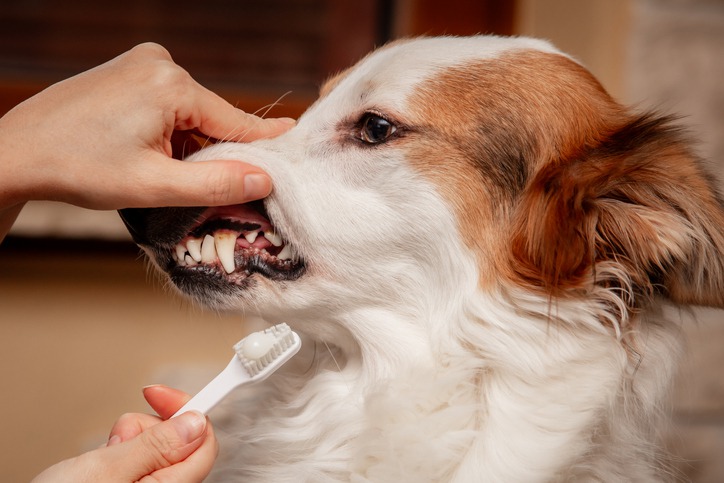Pet medical emergencies can be stressful and overwhelming. It’s tough to see our furry friends in distress and not know what steps to take. Understanding how to handle these situations can significantly affect your pet’s recovery and well-being.
Immediate Steps to Take
When you face a pet medical emergency, keeping calm is crucial. Here are the steps you should follow:
-
Assess the Situation: Look at your pet’s condition. Are they bleeding, struggling to breathe, or in severe pain? Try to gauge the severity of the problem.
-
Keep Your Pet Calm: Animals can pick up on your stress, so stay as calm as you can. Speak to them in a soft, reassuring voice.
-
Contact Your Vet: Call your vet immediately. Describe the symptoms and ask if you need to bring your pet in right away.
Basic First Aid for Pets
Before you can get your pet to the vet, some basic first aid might be necessary:
-
For Bleeding: Apply gentle pressure with a clean cloth to stop the bleeding. Keep the pet as still as possible.
-
For Choking: Check the mouth for obstructions and remove them if safe to do so. If not, you might need to perform a pet-specific Heimlich maneuver.
-
For Poisoning: If you know what your pet ingested, bring the container with you to the vet. Do not induce vomiting unless directed by a vet.
Finding the Right Vet Care
Not all veterinary practices offer emergency services. It’s a good idea to have contact details for an emergency vet before you need them. If you’re unsure of where to go, look for vets that specifically offer emergency care. This way, you’re not scrambling in the heat of the moment to find help.
Common Pet Emergencies and How to Handle Them
Knowing the types of situations that constitute an emergency can help you act swiftly:
Seizures
If your pet has a seizure, maintain a safe environment by removing nearby objects that could cause injury. Do not try to restrain them. Time the seizure and call your vet once it’s over. Your pet may be disoriented afterward; keep them calm and speak softly.
Heatstroke
Pets can suffer from heatstroke, especially during hot weather. Symptoms include excessive panting, drooling, and lethargy. Move your pet to a cooler place, offer small amounts of water, and use damp cloths to cool them down. Avoid ice-cold water, which can cause shock.
Fractures
If you suspect a fracture, try to stabilize the injured limb without causing further harm. You can use a makeshift splint with soft padding or a towel. Avoid moving your pet too much and transport them carefully to the vet.
Having a go-to vet clinic for regular check-ups and emergencies is essential. A comprehensive Suwanee vet offers a range of services that can benefit your pet’s overall health. From routine exams to emergency care, knowing that you have a reliable vet can give you peace of mind. In case of emergencies, such familiarity can make your vet act quicker and more efficiently.
When to Go to the Emergency Vet
Some situations require immediate veterinary attention. Don’t hesitate to go to an emergency vet in the following cases:
-
Severe Bleeding: If the bleeding doesn’t stop within a few minutes.
-
Breathing Problems: Any difficulty in breathing should be addressed urgently.
-
Eye Injuries: Injuries to the eyes can lead to permanent damage if not treated promptly.
If you’re a new pet parent, vaccinating your puppy is crucial. Puppy vaccinations in Suwanee, GA provide essential services to prevent common diseases. Keeping vaccinations up to date is one of the best ways to ensure your puppy grows up healthy and strong. Regular check-ups also make it easier to spot any early signs of health issues.
Emergency Services
If you ever wonder about the range of services your pet may need, consider researching your local veterinary clinics and their emergency vet services. These facilities usually cover a broad spectrum of urgent animal care needs, from surgeries to critical care. Knowing what services are available can save precious time during an actual emergency.
Preparing for Future Emergencies
You can never completely prevent emergencies, but you can be prepared for them:
-
First Aid Kit: Have a pet-specific first aid kit at home.
-
Emergency Contacts: Keep your vet’s contact details easily accessible.
-
Plan: Have a basic plan for how to transport your pet quickly.
Staying Calm and Focused
Your pet depends on you to stay calm in an emergency. By having a plan and knowing the steps to take, you make the situation less terrifying for both you and your pet. Remember, the faster you act, the better the chances of a positive outcome.
Pet Insurance
Consider getting pet insurance to cover emergency costs. Unexpected vet bills can be expensive, and having insurance can make a big difference. Many plans offer comprehensive coverage, which can ease the financial burden during emergencies.
Learning Basic Pet First Aid
Taking a pet first aid course can be extremely beneficial. You’ll learn how to handle different types of emergencies and give your pet the initial care they need. Many veterinary clinics and pet organizations offer these courses.
Closing Remarks
In a pet medical emergency, knowing what to do can save your pet’s life. Stay calm, follow the necessary steps, and don’t hesitate to contact your vet. Being prepared for these situations ensures that you can offer your pet the best possible care when they need it most.



